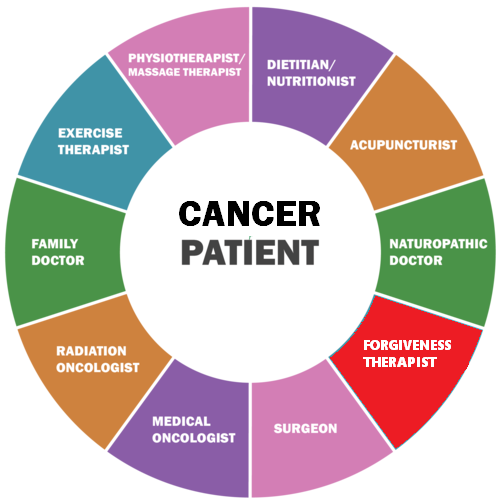Why Forgive?
While people forgive for a host of reasons, forgiveness is the right thing to do physically, spiritually and socially.

Image by StockSnap.io
Physically, forgiveness creates a higher quality of life, a healthier body, and a more positive attitude. Dr. Enright has scientifically proven these and other therapeutic benefits of forgiveness through his experimental studies (with Randomized Experimental and Control Groups). In most of Dr. Enright’s studies, those in the experimental group showed better emotional health (reduced anger, anxiety, depression, and/or PTSD symptoms with increased hopefulness about the future, self-esteem, and/or willingness to forgive) than those in the control group. For more information, read the text of all the journal articles related to Dr. Enright’s research projects.
According to the respected health website WebMD.com, if you can bring yourself to forgive, you are likely to enjoy lower blood pressure, a stronger immune system, and a drop in the stress hormones circulating in your blood. Back pain, stomach problems, and headaches may disappear. And you’ll reduce the anger, bitterness, resentment, depression, and other negative emotions that accompany the failure to forgive.

Those findings were substantiated by a study recently published in the Journal of Health Psychology. Forgiving yourself and others can lower your stress and boost your mental health, researchers concluded.
While refusing to forgive may not directly cause disease, according to WebMD, the negative impact of holding on to painful memories and past wounds can weaken the immune system making you more susceptible to diseases like cancer.
It’s important to treat emotional wounds or disorders because they really can hinder someone’s reactions to the treatments — even someone’s willingness to pursue treatment
said Dr. Steven Standiford, chief of surgery at Cancer Treatment Centers of America. In fact, forgiveness therapy is now an integral part of treatment at Cancer Treatment Centers of America
Read: Self-Care Strategies for Cancer Patients.
If I hadn’t learned to forgive, I may not even be alive today.
Jayne Valseca
Watch a short video about the amazing power forgiveness has had on the life of Jayne Valseca and her battle with cancer. Watch the video here.
The healthcare and lifestyle website WisdomTimes.com says there are at least 13 Health Benefits of Forgiveness:
- Lower blood pressure
- Stress reduction
- Less hostility
- Better anger-management skills
- Lower heart rate
- Lower risk of alcohol or substance abuse
- Fewer depression symptoms
- Fewer anxiety symptoms
- Reduction in chronic pain
- More friendships
- Healthier relationships
- Greater religious or spiritual well-being
- Improved psychological well-being

(Image by StockSnap.io)
One-Liners on Forgiveness:
- Forgiveness frees myself from burden and anger.
- Forgiving renders me weightless.
- Forgiving is freedom from the strife that binds me.
- I forgive, so that I can live.
- I forgive, so that I can soar.
- I embrace forgiveness, in order to stream light from inside myself.
These one-line quotes on forgiveness are from the website P.S. I Love You which promotes its content as “Writing from the heart. Stories about life, loss, and love in the digital age.”
Spiritually, forgiveness affirms what our faith usually requires of us and, therefore, helps us live a life of integrity. Forgiveness has a common theme across Hebrew, Confucian, Buddhist, Christian, Muslim, and Hindu writings. Many people forgive because their God asks them to do so. They forgive as an act of love toward God. They forgive because they know that it is a morally good thing to do.
Socially, forgiveness reduces anger and resentment and often leads to an improvement in personal relationships with family, friends and community. Forgiveness has a way of cutting through our anger, disappointment and resentment to give everyone involved a fresh start. As you forgive, you are set free from the prison of resentment. Forgiving liberates us. Only forgiveness liberates us from a painful past to a brand-new future. At the same time, those around us benefit because we are less likely to carry our anger into other situations. We are less likely to displace our anger onto those who don’t deserve such treatment.
Think about Mother Teresa, Gandhi, Mandela, and Martin Luther King Jr. It is no coincidence that each of these spiritual and political leaders advocated forgiveness. Each found in forgiveness an empowering attitude toward their personal lives as well as toward their political work in the world.
– Dr. Peter Breggin
“Forgiveness has no downside,” according to Dr. Peter Breggin. “A renewal of our capacity to forgive can only improve our inner life and empower us in every activity we undertake.” Peter Breggin, M.D. is a Harvard-trained psychiatrist and the author of more than 20 books and dozens of peer-reviewed scientific articles, many in the field of psychopharmacology. Read his insightful blog “How Forgiveness Can Change Your Life.”
Become a “Peace Builder” by signing The Forgiveness Pledge.



